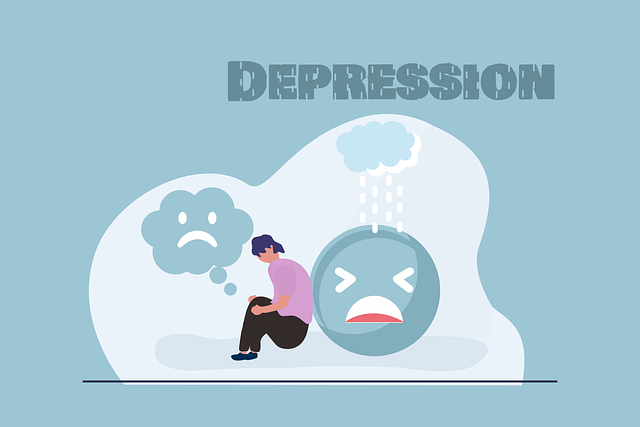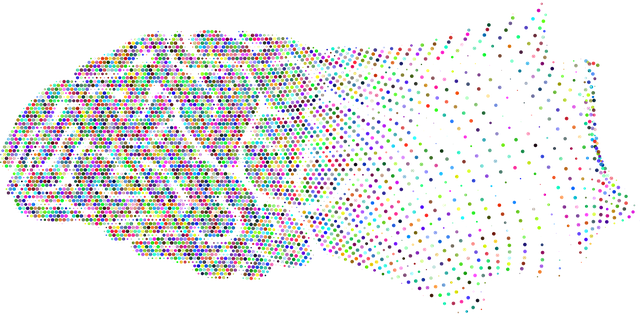Depression in children with developmental disabilities requires a specialized approach using assessment tools to identify subtle signs. Tailored therapy combines behavioral interventions, speech therapy, and building inner strength, integrating Mind Over Matter principles. Risk Management Planning ensures personalized support. CBT and IPT are effective prevention strategies, focusing on thought patterns, relationships, and healthy stress management. Home and school support through open communication, family activities, and emotional well-being promotion in curricula is crucial. Accessible therapy strengthens this approach.
Depression among children with developmental disabilities is a growing concern, yet preventive strategies remain underemphasized. This article explores vital approaches to safeguard our young ones, including recognizing depressive symptoms unique to this population and implementing effective therapy models. We delve into the importance of holistic support at home and in schools, highlighting practices that foster resilience and well-being. By embracing evidence-based strategies, such as cognitive-behavioral therapy tailored for children with developmental disabilities, we can prevent and mitigate depression, ensuring a brighter future for these individuals.
- Recognizing Depression in Children with Developmental Disabilities
- Therapy Approaches for Effective Prevention and Treatment
- Supporting Children at Home and School: A Holistic Approach
Recognizing Depression in Children with Developmental Disabilities

Recognizing depression in children with developmental disabilities is a critical step towards effective prevention and treatment. These young individuals often face unique challenges due to their conditions, which can mask or complicate depressive symptoms. For instance, children with autism spectrum disorder (ASD) might display irritability, social withdrawal, or repetitive behaviors instead of the typical sadness and tearfulness associated with depression in neurotypical children.
Mental health professionals play a vital role in identifying these subtle signs by employing specialized assessment tools tailored to developmental disabilities. Therapy for children with special needs often involves a multi-faceted approach, combining behavioral interventions, speech therapy, and strategies to develop inner strength. By integrating Mind Over Matter principles into their practice, professionals can empower these children to build resilience and cope with life’s challenges, thereby reducing the risk of depression. Additionally, Risk Management Planning is essential to ensure that mental health support is accessible and tailored to each child’s unique needs.
Therapy Approaches for Effective Prevention and Treatment

Depression prevention strategies often involve therapy approaches tailored to meet the unique needs of individuals, especially those with developmental disabilities. Cognitive Behavioral Therapy (CBT) has proven effective in treating depression and anxiety disorders by helping people identify and change negative thought patterns and behaviors. This approach is particularly beneficial for children with developmental disabilities as it provides them with tools to manage stress, improve emotional regulation, and enhance coping strategies.
Incorporating therapy into prevention plans also includes other evidence-based methods like Interpersonal Psychotherapy (IPT), which focuses on improving relationships and social skills. These therapeutic interventions are essential components of a comprehensive strategy aimed at raising public awareness about depression prevention and promoting healthy stress management practices within communities, especially those with diverse populations including children with developmental disabilities.
Supporting Children at Home and School: A Holistic Approach

Supporting children at home and school is a crucial aspect of depression prevention, taking a holistic approach to their overall well-being. This involves fostering an environment that nurtures their emotional development and equips them with effective coping strategies. In homes, parents and caregivers play a pivotal role by promoting open communication, encouraging healthy expressions of feelings, and providing consistent support. Regular family activities can also strengthen bonds and offer opportunities for stress management workshops tailored to both children and parents, addressing any concerns early on.
Schools, as a second key setting, should integrate emotional well-being promotion techniques into their curricula. Teachers can create safe spaces where students feel comfortable discussing their feelings and experiences. Public awareness campaigns developed by organizations focused on developmental disabilities can educate both students and staff about mental health, reducing stigma and encouraging help-seeking behaviors. Such initiatives, combined with accessible therapy for children, form a robust foundation for preventing depression in young individuals.
Depression prevention among children with developmental disabilities requires a multi-faceted approach, combining professional therapy with holistic support at home and school. By recognizing early signs of depression and implementing effective therapy strategies, such as cognitive behavioral therapy tailored to their needs, we can foster resilience and promote positive mental health outcomes for these vulnerable individuals. A collaborative effort between parents, educators, and healthcare professionals is essential to create an environment that nurtures emotional well-being and prevents the onset or exacerbation of depressive symptoms in children with developmental disabilities.














